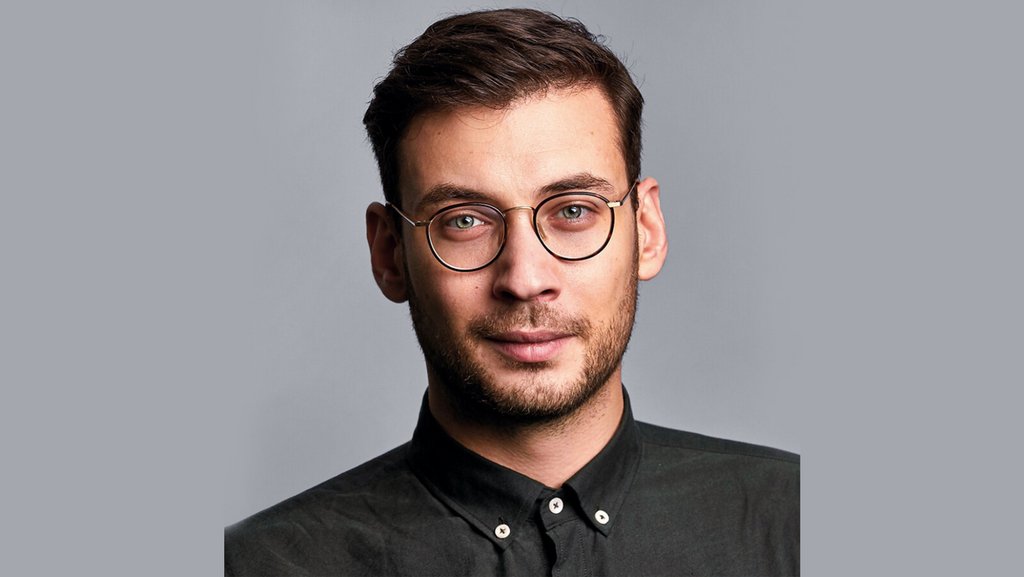People - 01.02.2024 - 08:00
Appointment: Blagoy Blagoev
Prof. Dr. Blagoy Blagoev has been full professor of Organization Studies at the University of St.Gallen since 1 February 2024.

Prof. Dr. Blagoy Blagoev ist seit 1. Februar 2024 Ordentlicher Professor für Organisation an der Universität St.Gallen.
Prof. Dr Blagoy Blagoev studied Business Administration at Freie Universität Berlin from 2006 to 2009 and Management and Marketing at Freie Universität Berlin and the University of Illinois from 2009 to 2011. He completed his doctorate (summa cum laude) at the DFG (German Research Foundation) Research Training Group “Research on Organizational Path” at Freie Universität Berlin. His doctoral thesis entitled “Working time regime in lock-in? A path-theoretical investigation of the persistence of excessive working hours in consulting firms” was awarded Freie Universität’s Ernst Reuter Prize for outstanding dissertations. After completing his doctorate, he worked as a postdoctoral researcher at the Management Department of Freie Universität Berlin and as an academic assistant at Europa Universität Viadrina until 2018. From 2018 to 2021, he worked as a Lecturer at the Institute for Management and Organisation at Leuphana University Lüneburg. Guest lectureships and research stays have taken him to Antwerp Management School, Copenhagen Business School, Radboud University Nijmegen and the University of Graz, among others. In 2021, he was appointed to the Technical University of Dresden, where he held a Professorship for Business Administration, especially Organization.
Research on new forms of organizing and social transformation
In his research, Blagoy develops and uses a temporal lens to examine the interplay of people, organizations, and society in the context of current technological, ecological, and cultural transformations. His research interests include the organization and management of sustainability, digitalization and organizational communication, new and decentralized forms of work and organizing, such as coworking spaces or agile teams, as well as questions of organisational change, innovation, and overcoming persistence and path dependencies. Together with his team, he is currently working on the organization of multi-sector collaborations in the context of sustainable energy transitions, the influence of digitalization on sustainability management, and the sustainable entrepreneurship in the food industry. The research contexts of his qualitative-empirical and historical studies range from multinational corporations and professional service firms to museums and food start-ups. His work has appeared in leading international journals, including Administrative Science Quarterly, Academy of Management Journal, Journal of Management, Journal of Management Studies, Organization Studies, Organization, and Scandinavian Journal of Management. Blagoy has received multiple awards, grants, and fellowships, including the Ernst Reuter Prize (2016), two DFG project grants (2015 and 2017), as well as the Governing Responsible Business Fellowship at Copenhagen Business School (2016-2017).
Blagoy regularly works with practice partners on topics such as leadership development and leadership capabilities for the digital world, organizational structure and design, diversity and inclusion, as well as organizational agility and ambidexterity.
Blagoy teaches in the field of management and organization studies. His teaching combines a strong research-orientation with practical applicability. In his teaching, he raises students' awareness of the (co-)responsibility of organisations, especially multinational corporations, for the grand social challenges of our time, such as climate change, social polarization, and digitalization. In his courses, he teaches students how organizations can be conceived, designed, and managed in such a way that they can respond to such complex challenges in a meaningful way. More than ever, this means taking sustainability and ethical issues into account alongside purely economic efficiency considerations.
More articles from the same category
Discover our special topics











